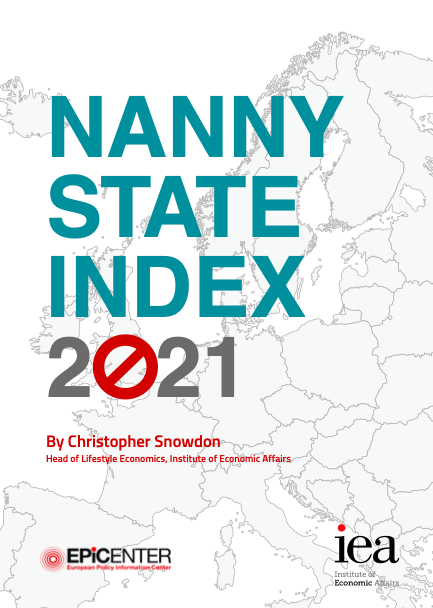Stimulants, Food, Beverages - Poland Is Getting More Restrictive, Most Freedom Is Granted in Germany and the Czech Republic
 Synteza:
Synteza:
-
The Nanny State Index measures the level of restrictiveness of laws regulating the sale and consumption of food, soft drinks, alcohol, tobacco and e-cigarettes. The higher a country's ranking, the more restrictive the regulations and the less freedom of choice for consumers.
-
In the latest edition of the ranking, Poland is still among the countries with strong restrictions, and regulations are more restrictive than two years ago. Hence its "promotion" from 12th to 9th place in the ranking. New regulations on e-cigarettes, higher excise taxes on alcohol and cigarettes, and a sugar tax effective from the beginning of 2021 are mainly responsible for this.
-
The country with the strongest restrictions was Norway, added in this edition. Second and third place in the Nanny State Index 2021 were taken by Lithuania and Finland, respectively.
-
Germany was the least restrictive country in this year's Nanny State Index, followed closely by the Czech Republic, Luxembourg and Spain.
-
Restrictive regulations in EU member states are on the rise. As the authors of the Nanny State Index note, twelve EU countries have already imposed special taxes on sugary beverages (two years ago it was nine), and thirteen countries on e-cigarette refills for e-cigarettes (eleven in the previous edition).
-
Most of the negative changes introduced for consumers in recent years were not caused by EU regulations, but by national politicians' decisions to make regulations in their countries more restrictive.
-
The authors of the index do not find a correlation between the restrictiveness of regulations and life expectancy, the number of smokers or the level of alcohol consumption, and they remind us of the various problems generated by state overprotectiveness (the growth of the black market, higher bureaucratic costs, lower innovation in product creation and development).
-
The dispute is over whether adult consumers are to be treated as responsible adults for their own lives or as children in need of constant care.
Contact the author:
Marek Tatała, FOR Vice President, Economist
[email protected]
Files to download

